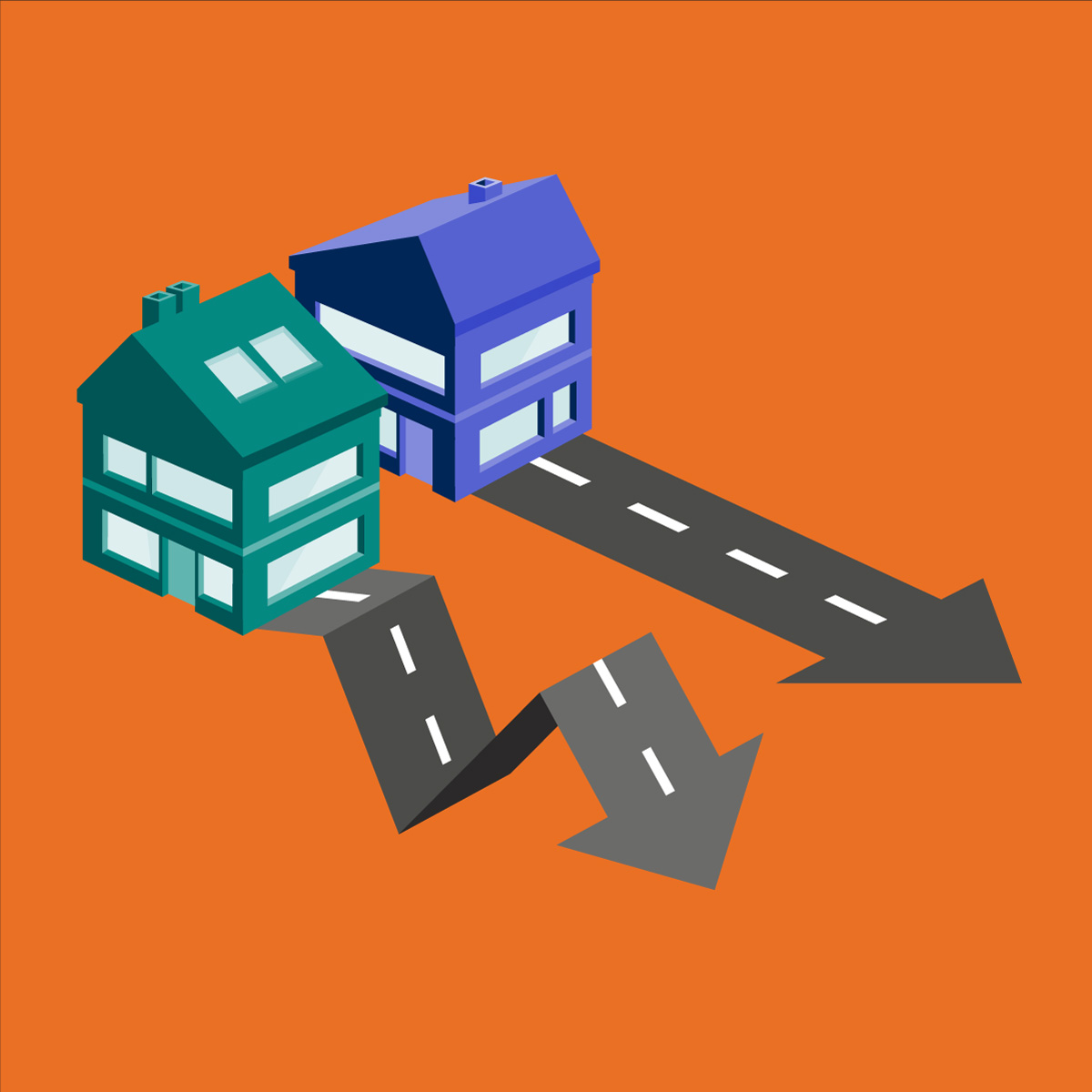Extra costs during the first 6-12 months of homeownership | Tangerine
One of the first financial reckonings I had was when I first moved out on my own. In my mind, all I had to prepare for was rent. But the reality is we take for granted many of the small expenses that add up to a large portion of our overall spending.
The transition from renter to homeowner is almost a quantum leap in comparison. And I'm not just talking about all the closing costs you have to budget for after having already saved up for a down payment – like land transfer taxes, legal fees, appraisal fees, inspection fees, sales tax, title insurance, mortgage default insurance and more. Those can add up to tens of thousands of dollars and leave you feeling pinched by the time you get the keys to your new abode.
No, I'm talking about the extra costs you might encounter during the first 6-12 months of home ownership that you may need to budget for.
Connection fees and deposits
Whether it's for utilities like electricity and water, or services like Internet or cable TV, you may face connection fees, hardware purchases, and deposit requirements. These could add up to a few hundred dollars.
New door locks and keys
It might cost a few hundred dollars to ensure that there's only one set of keys to your home. For your security and peace of mind, it's well worth it.
Homeowner's insurance vs. renter's insurance
In addition to providing liability coverage, renter's insurance essentially covers your belongings. Your landlord would have been responsible for insuring the actual structure (which is more expensive to insure). So by becoming a property owner, you'll now have to bear that responsibility. Your cost here could increase by around $50 per month, or more.
Property tax
As a property owner, you'll pay property tax every year. It's one of the main sources of revenue for municipalities, and basically funds the running of the city or town. Think police, firefighters, city hall, schools, libraries, parks, street snow removal, and more. There are plenty of property tax estimate calculators available online, and you should use them to get a ballpark figure of what to expect. For now, let's say it will be at least a few thousand dollars per year.
New or more furniture
It's common to upgrade the amount of space you live in when transitioning from renter to owner. Not only might you have more room, you might feel that any existing furniture you have needs an upgrade. This can easily run into the thousands.
Appliances
At some point during the purchase of your new home, you'll likely have had a conversation about whether the appliances are included with the home. If not, that'll be a few thousand dollars you'll need to earmark for. Since cash is tight when you move in, if the deal did include appliances, replacing them will likely wait until you have some financial breathing room.
Window coverings
A friend recently moved into a detached house, which was previously used as a model home. When they moved in, they had 21 windows with no coverings. They got a quote for various blinds and curtains, and including labour for installation the quote was in the $10,000 range.
Maintenance
If you're living in a condo, you'll have a monthly maintenance fee to pay. The more amenities the condo has, the higher the fees. So if your building has a pool, movie theatre, gym, and 24-hour concierge, then the maintenance fee will be higher than a no-frills building. Some people will be put off by the prospect of monthly maintenance fees (routinely hundreds of dollars per month), and mistakenly think buying a freehold property might be more economical.
But just because there is no monthly fee required, it doesn't mean your maintenance fees will be markedly lower over time. Sure, you might roll up your sleeves and shovel your own snow, mow your own lawn, and plant a garden, but you'll have other costs to consider. You'll have all the upfront costs of buying the equipment you'll use to maintain the property. You might periodically have the eavestroughs cleared or the driveway sealed.
Then there are the big ticket items, like a new roof or foundation repair. Either of these jobs can cost well over $10,000 per hit, but hopefully only spring up once per 15 to 20 years. The real problem is if big ticket maintenance items happen early, or close together. You may want to set aside a thousand dollars or more for upfront costs and tools, and then a few hundred dollars per month thereafter to budget for your maintenance liabilities as an owner.
Odds and ends
I recently heard a story where a seller took out all the light bulbs before turning over possession. It would cost well over $100 to buy new energy efficient lights for an average house. Any unexpected costs are going to hurt since the purchase of a home is such a cash crunch as it is.
When you're considering home ownership, you have to plan not only for the costs of making the purchase, but the higher costs associated during the first year and on an ongoing basis. If not, the excitement of owning your own home may be overcome by financial stress.









